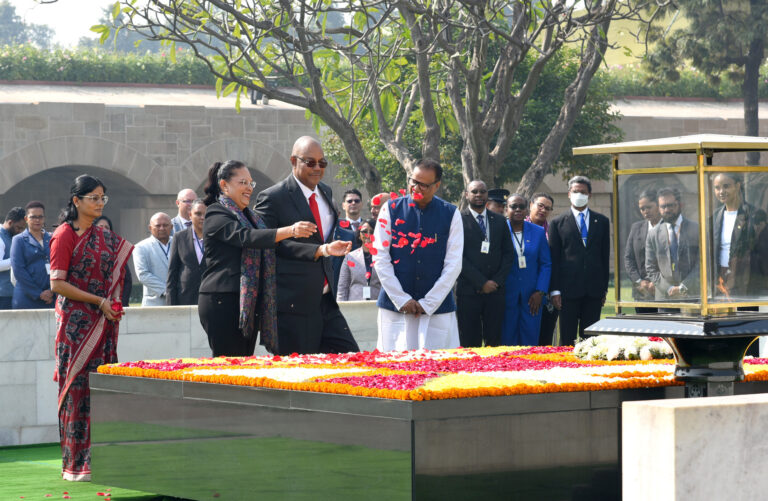
Bengaluru: The first G20 Finance Ministers and Central Bank Governors (FMCBG) and second Finance and Central Bank Deputies (FCBD) meetings held here in Bengaluru from February 22-25, 2023, today released its Chair Summary and Outcome Document which the Union Ministry of Finance claimed to be a significant achievement by G20 under India’s Presidency.
The FMCBG tasked the Framework Working Group under the G20 Indian Presidency to work on macroeconomic scenarios, consequences and impacts of food and energy insecurity and their implications for the global economy and in policy settings.
“We look forward to deepening the G20 Finance Track policy discussions on assessing the macroeconomic risks to strong, sustainable, balanced, and inclusive growth (SSBIG), including those stemming from climate change and various transition policies taking into account country-specific circumstances,” it stated.
The FMCBG also asked the Sustainable Finance Working Group to develop an analytical framework for enabling finance for Sustainable Development Goals, with an initial focus on nature-related data and reporting and social impact investing, taking country circumstances into consideration.
The Chair Summary and Outcome Document covered subjects ranging from the global debt crisis, Multilateral Development Bank reforms, climate finance, global approach on cryptos, digital public infrastructure, financial inclusion, financing cities of tomorrow, and taxation.
Expressing concerns that global growth remains slow, and downside risks to the outlook persist, including elevated inflation, a resurgence of the pandemic and tighter financing conditions that could worsen debt vulnerabilities in many Emerging Market and Developing Economies (EMDEs), the participants reiterated the need for “well-calibrated monetary, fiscal, financial, and structural policies to promote growth and maintain macroeconomic as well as financial stability”.
“We will continue to enhance macro policy coo peration and support the progress towards the 2030 Agenda for Sustainable Development,” the Outcome document stated and reaffirmed the importance of “staying agile and flexible” in their policy response.
“We will use macroprudential policies, where required, to safeguard against downside risks. We will prioritise temporary and targeted fiscal support to vulnerable groups while maintaining medium-term fiscal sustainability. Central banks remain strongly committed to achieving price stability, in line with their respective mandates. They will ensure inflation expectations remain well anchored and will clearly communicate policy stances to help limit negative cross-country spillovers,” it stated.
Recognising that Central bank independence is crucial to maintaining policy credibility, the Declaration stressed the importance of supply-side policies, especially policies that increase labour supply, boost growth and alleviate price pressures – “We reaffirm our April 2021 exchange rate commitments. We reaffirm the importance of the rules-based, non-discriminatory, fair, open, inclusive, sustainable and transparent multilateral trading system with the World Trade Organization (WTO) at its core in restoring growth and job creation, and reiterate our commitment to fight protectionism, and encourage concerted efforts for reform of the WTO.”
Referring to the ongoing war in Ukraine that adversely impacts the global economy, the FMCBG reiterated their national positions. Members, except Russia and China, strongly condemned the war in Ukraine and stressed that it is causing immense human suffering and exacerbating existing fragilities in the global economy – constraining growth, increasing inflation, disrupting supply chains, heightening energy and food insecurity, and elevating financial stability risks, there were other views and different assessments of the situation and sanctions.
The Outcome Document recognised that the G20 is not the forum to resolve security issues but acknowledged that security issues can have significant consequences for the global economy.
“It is essential to uphold international law and the multilateral system that safeguards peace and stability. This includes defending all the Purposes and Principles enshrined in the Charter of the United Nations and adhering to international humanitarian law, including the protection of civilians and infrastructure in armed conflicts,” the FMCBG stated and made it clear, with the exception of Russia and China, that the use or threat of use of nuclear weapons was inadmissible – “The peaceful resolution of conflicts, efforts to address crises, as well as diplomacy and dialogue, are vital. Today’s era must not be of war,” the stated.
On Multilateral Development Banks (MDBs), the FMCBG and FCBD acknowledged the key role they play in development financing, and their need to evolve given the scope and complexity of transboundary challenges and the resultant increase in demand on their lending resources, knowledge support, and for catalysing private investment. “We will work to strengthen MDBs towards this end,” the Outcome Document stated.
– global bihari bureau





